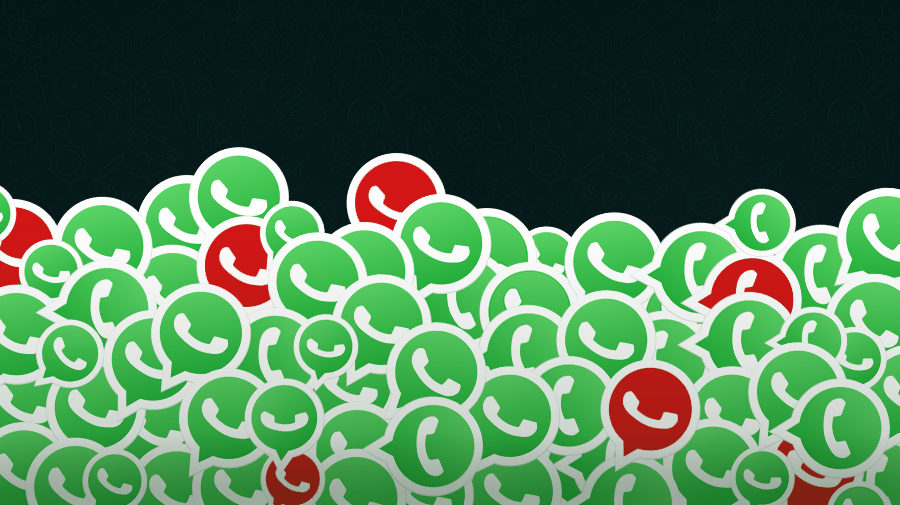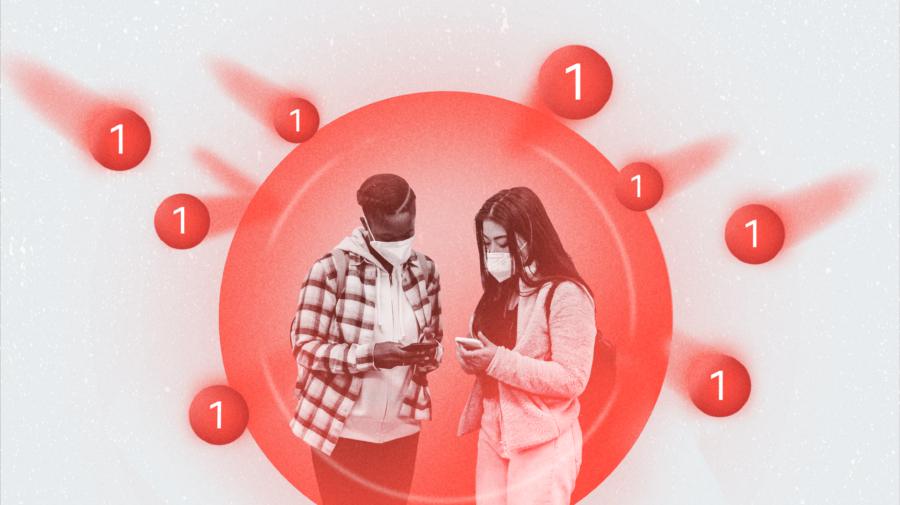Combatting misinformation about coronavirus can be thought of in a similar way to the test-and-trace plan to stop the spread of the virus itself. Test a claim for accuracy, trace it back to the source, and isolate it to stop it spreading further.
On messaging apps such as WhatsApp, however, tracing is almost impossible. Memes, posts, videos and audio clips are forwarded to contacts and chat groups with a tap or swipe and no easy way to see how the content might have travelled between communities.
This is why it is important to talk to our contacts, especially those closest to us, about misinformation they might have shared.
Read more: The 5 closed messaging apps every journalist should know about — and how to use them
India has a history of violent incidents sparked by rumours or accusations on WhatsApp, used by 400 million people across the country. Some 52 per cent of Indian respondents surveyed for the 2019 Digital News Report said they get their news from WhatsApp, compared to just four per cent in the United States.
First Draft spoke to Pratik Sinha, editor and co-founder of Indian fact-checking organization Alt News, on how best to talk to friends and family about something false they might have shared on the messaging app.


Misleading messaging peddling false preventives and cures like hot weather and ‘gaumutra’ (cow urine) are viral in India. Screenshots by author.
Don’t shame your loved ones
The last thing you want to do is turn this into an ugly confrontation. As Sinha says, “Very often we end up getting into a conflict situation and then we see that one side doesn’t want to listen to the other side.”
Replying to the message and calling it out in public could shame the person who shared the claim, potentially making them double down on their views. A private message focusing on their motivations rather than the content is more likely to work. Ask them who they received the message from, if they know where it originated, and why they decided to pass it on to you.
Show empathy
The pandemic has created levels of uncertainty and anxiety that are not easy to handle. It is in this climate that your loved ones are sharing things, not only because they want to spread a message, but also because they are afraid. We’re all afraid. Recognize this in your response and put yourself in their shoes.
In an interview with Canada’s CBC News, Claire Wardle, co-founder of First Draft and a recognized expert in misinformation, said that reacting emotionally and taking a tone of “you’re wrong and I’m right” does not work. If anything, it strengthens the other person’s views, and pushes the two of you further apart. Approaching this with a “we’re all in this together” attitude is advisable.
Be responsible
As tempting as it is to ignore the message, this sends the wrong signal — that you accept false or misleading content in your inbox. We all have a responsibility to call out our contacts, especially those closest to us, for spreading a false message. In the age of the coronavirus, discouraging your friends from sending these untruths any further could be the difference between life and death, as untested “cures” and “remedies” are flooding social media.
Do your research, and check established fact-checking organisations like Alt News or WebQoof in India, or one of their fellow signatories of the Poynter Institute’s IFCN code of principles to ensure a message’s authenticity.
Platforms have made it extremely easy to forward messages — it only takes two taps on WhatsApp — which is why this behavior has become part of our digital culture. The platforms are introducing measures to prevent the spread of false information; but we can all play a role in calling it out.
As Wardle told First Draft, there was once a time when you would simply hope for the best when your drunk friend decided to drive home. Now, you take away his car keys and make sure he gets back safely with someone else.
Don’t expect immediate change
No one forms or changes their views overnight, so don’t expect your loved ones to do so. The process takes courteousness and patience. The more you politely challenge them, the more likely they are to think about the things they share and to question the source.
Speaking up clearly, using concise language and providing sources works, according to a 2016 study on misinformation around research into the 2015-16 Zika virus outbreak.


Misleading messages with an audio clip falsely attributed to Dr. Devi Shetty and a ‘coronavirus vaccine’ were popular on WhatsApp. Screenshots by author.
Misinformation is often spread with an agenda in mind. India is a strong example of this; misinformation has thrived in the country’s WhatsApp groups and messages for several years and could hold lessons on how it can be countered in other parts of the world.
Sinha points out that the situation in India is a product of its polarized politics, and the problem is that misinformation often comes from the top — government officials and political parties. This makes it all the more difficult to challenge, and thus requires more patience. “It is a long process [to change one’s mind],” he says.
Misinformation has a very real impact. False cures, unscientific preventative measures, and conspiracy theories abound on WhatsApp, and all have a tangible influence. From Indians drinking cow urine to Americans consuming cleaning liquid in hope of curing the virus, the misinformation has proven as dangerous and disruptive as the virus itself. Breaking the chain of misleading messages on WhatsApp and elsewhere is a small but crucial step everyone can take.
Find out more about closed messaging groups, as well as online ads and Facebook groups in our recent Essential Guide.
Stay up to date with First Draft’s work by becoming a subscriber and follow us on Facebook and Twitter.






